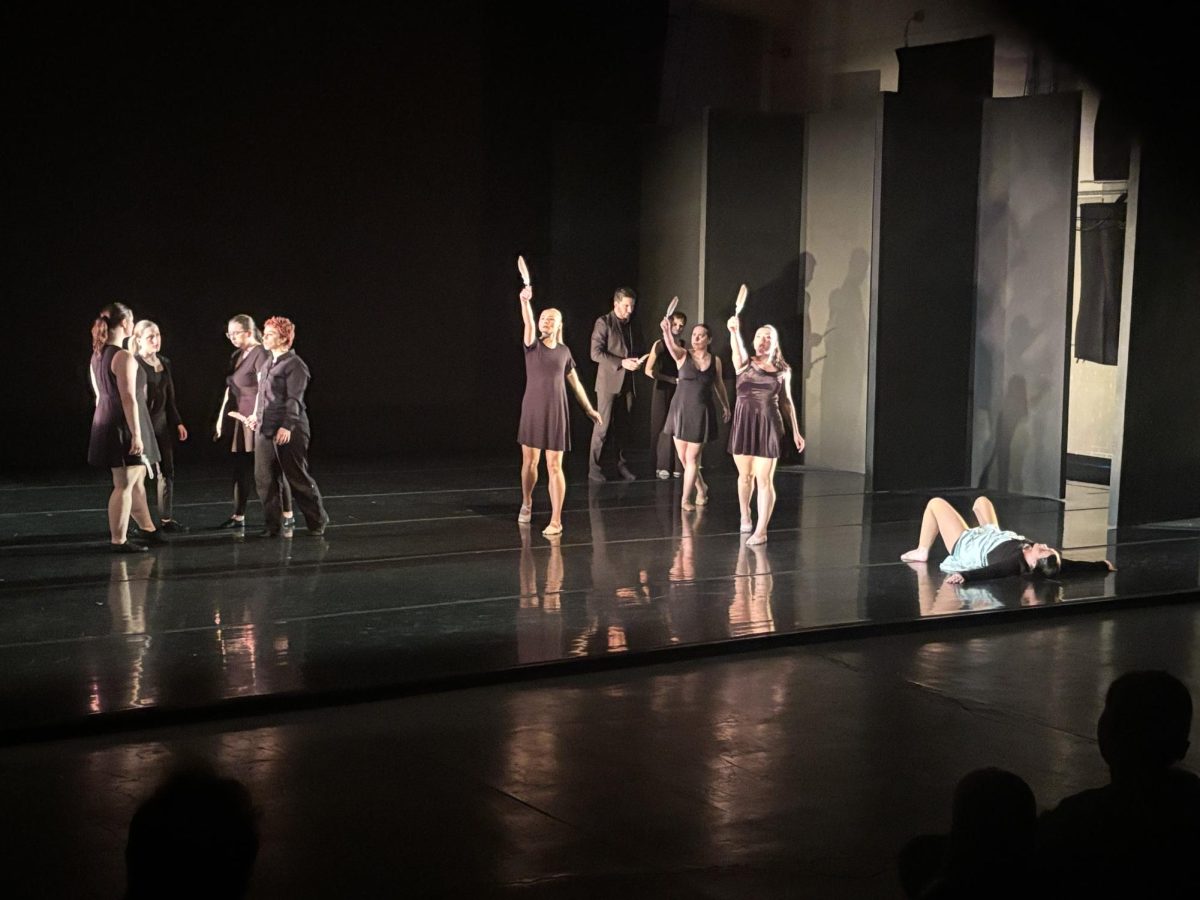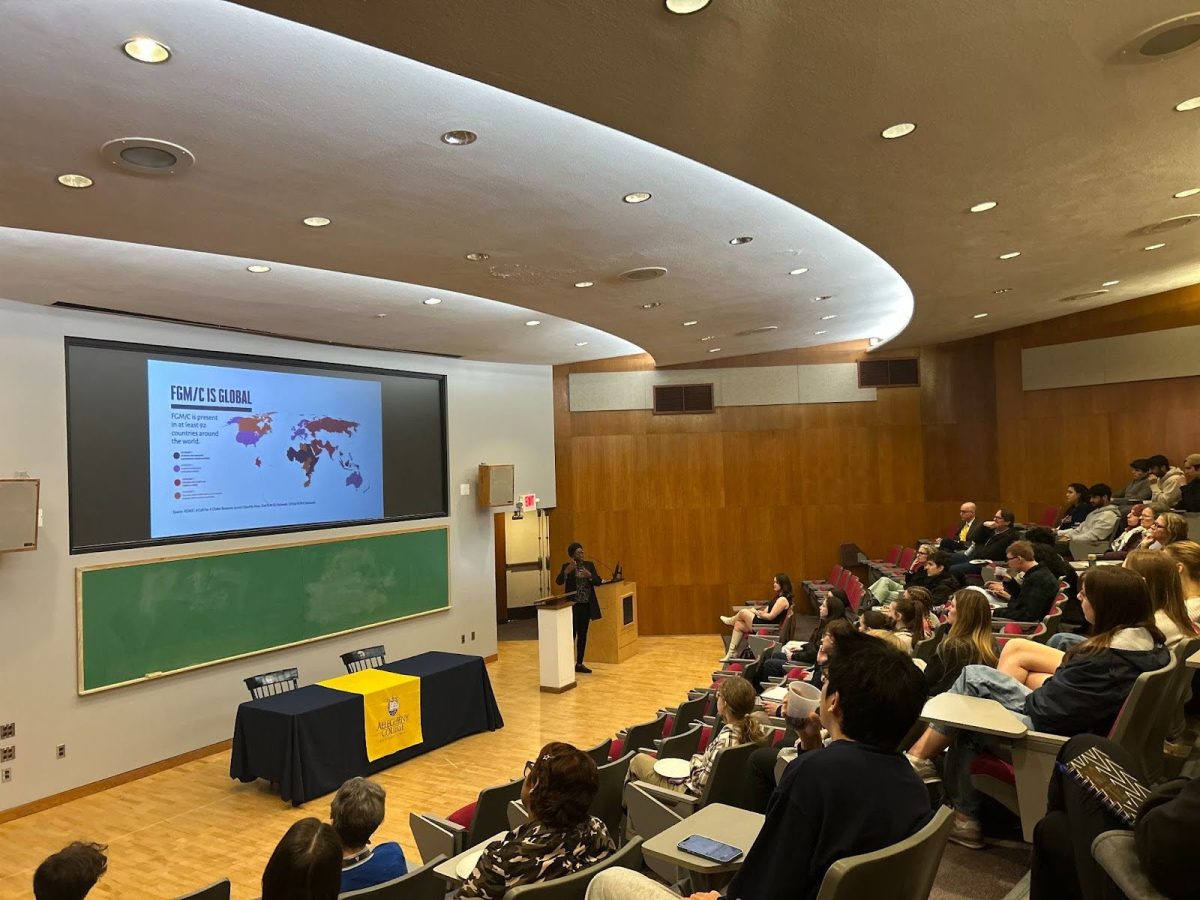What is something you want your peers to know about your role as a NaviGator?
Maya Francisco, ’24: NaviGators are peers who can help you find resources on campus, connect with professors or people involved in activities you’re interested in, and someone to be a support system for you if you want. Many of us span across different class years with varying interests and experiences, thus, you have a diverse range of people you can always go talk to.
Landon Schmader, ’26: Connecting with the Navigators are a great way to learn about any activity or experience that you might want to pursue on campus!
Ethan Borsh, ’25: Navigators are students too! We’ve either been in your shoes or worn a similar pair before. What we offer is the chance to connect with a peer without worrying about some of the usual stressors associated with that level of interaction.
Regarding academics and studying, what do you wish you knew your first year at Allegheny?
Zach Fry, ’24: I wish I knew how accepting and understanding professors are. They are humans too and get busy weeks and sometimes struggle to catch up. As long as you communicate that you may be late on an assignment or need a little more help with a topic they are very willing to help. I also wish I knew the 40-20 trick for studying. The way it works is you study for 40 minutes and rest for 20 minutes. This keeps me from getting burnt out and stops me from getting distracted so much. Although there are many different ways to study, the 40-20 method works best for me.
LS: When I first came to campus, I wished I would have realized that studying in different places can be beneficial. In my first semester l would exclusively study in my dorm and it was quite difficult to focus because I was looking at the same walls all the time. Giving yourself a break from your room is a great way to keep yourself focused on your work. I also suggest utilizing a study group once in a while! It can be helpful to work on difficult projects or assignments with people to bounce ideas off of!
For students looking to get involved on campus, where should they start?
MF: Students should start with the involvement fair, looking online at the list of student clubs and organizations, and most importantly, figure out your own interests or priorities first. It’s very important to understand yourself a bit before exploring all of the interests. I recommend answering some of these questions for yourself by taking inventory on what you’re involved in now.
– Do you have a campus job?
– What is your work load?
– How do I want to spend my time and effort?
– What are my interests and are there ways to get involved relating to those interests?
Pallas Cain, ’25: Students that want to get involved can go to the involvement fair at the beginning of every semester. Clubs and organizations will be there to talk to you and answer any questions you may have. You can also reach out directly to the person in charge of the club online through the Allegheny College website which will usually provide their name and email. Alternatively, you can always talk to friends and see what they are involved in and ask when the meetings are. Finally, I recommend checking the MyAllegheny emails every morning for campus updates and looking at the posters throughout the campus center regularly. Who knows, you might spot an event that sounds super interesting!
How do you stay organized?
ZF: Google Calendar is the best way (in my opinion) to keep track of your day. You can plan study times, classes, and morning routines, you can make it as simple or complex as you decide you want it to be. As for keeping track of assignments, Google Keep is another useful tool to use. One thing that always helped me was keeping stuff in the same media, for example, keeping the entire class worth of work either on paper or online.
PC: I use Google Calendar to keep track of all my assignments and daily events. I also think it is important to keep your Google Drive as organized as possible. It will save you a lot of time in the long run to already have everything sorted into folders per class.
EB: I find that it’s essential to think of planning as its own activity, rather than something you do in the moment or along with other things. It’s important to set aside time to focus on being organized. Each night before bed, I make a point to make a to-do list for the next day— finding a similar ritual can be extremely helpful.
What is one piece of advice you would give to a new student?
MF: Don’t be afraid to ask others about opportunities or help. Many of us have found our interests and ways to navigate college and Allegheny lifestyle in general. Utilize all of the resources and people on campus whether that’s professors, career education, student-success center, friends and classmates. Everyone has something to offer, and eventually you too can help others.
ZF: Sign up and do everything that even mildly interests you, and if at some point you decide that you do not want to do that club/organization/topic anymore, then drop it. It is much easier to get involved with something you like if you cast a wide net. Nobody will be disappointed if you do not like the topic that they like and they will understand if you have to drop something for almost any reason. Remember the answer to everything is no unless you ask.
EB: The most important thing you can do for your academic life is to leave time for yourself to be bored. Work life balance is incredibly undervalued in academia and often we try to fight this by scheduling ‘time off’. It took me a long time to realize that even though I enjoy participating in clubs and hanging out with friends, it doesn’t tackle the stress of school like head on.
Instead of scheduling time to relax—try to make your schedule flexible so that you can work on your own time. This often means working ahead but this pays dividends. Also, being bored allows you the chance to reflect and learn more about yourself.






